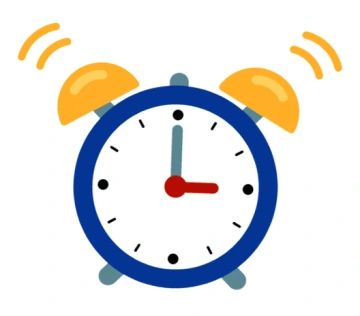The CACTI Blog: ADHD Night Owls: How Genes Determine Later Sleep and Wake Times

By Joseph Fraire, 2023-2024 Undergraduate Certificate in Developmental Disabilities
In the Spring of 2024, I worked with Dr. Michelle Perfect and her graduate student, Cori Manning, on a literature review looking at different sleep patterns in people with attention-deficit/ hyperactivity disorder (ADHD). I personally noticed how people I knew with ADHD had trouble with sleep, and as a future clinical psychologist I wanted to learn more about possible explanations for this. Specifically, I looked at research to find a possible explanation for why people with ADHD have later sleep and wake times.

People with attention-deficit/hyperactivity disorder (ADHD) frequently have difficulty falling asleep, trouble staying asleep, and are often tired throughout the day (Coogan et al., 2017). However, it is unclear exactly why sleep problems are so common in people with ADHD. Symptoms of ADHD may cause people to stay up later, since sleep might seem boring to them or they might need to stay up later to finish everything they had planned for the day. However, staying up late and not getting enough sleep can make it harder for anyone to pay attention, and has been shown to worsen ADHD symptoms (Coogan et al., 2017).
One possible explanation for these sleep problems in ADHD could be a general tendency for having later sleep and wake times. In fact, as many as 78% of children and adults with ADHD show evidence of having this trend of needing to go to sleep and wake up later than the general population (Coogan et al., 2017). People with later sleep and wake times are often called “Night Owls,” and they have also been associated with having the same troubles with sleep as people with ADHD (Caliandro et al., 2021).
Much of when we need to go to sleep and wake up are determined by biological processes called circadian rhythms (Caliandro et al., 2021). Circadian rhythms are a daily 24 hour cycle in our body, and are controlled by a region in our brain called the hypothalamus (Caliandro et al., 2021). The hypothalamus uses CLOCK genes to set our circadian rhythms, and differences in these CLOCK genes can determine when we go to sleep and wake up (Caliandro et al., 2021).
Some of these changes in CLOCK genes have been associated with “Night Owls”, or the trend for people to go to sleep and wake up later than others (Li et al., 2020). ADHD has also been associated with some differences in CLOCK genes that may determine later sleep and wake times (Li et al., 2020). There is also some evidence that these CLOCK genes may work differently in people with ADHD, and may have more difficulty with setting circadian rhythms (Akkaya et al., 2023).
Although further research is needed in this area, it suggests that certain genes in ADHD may determine later sleep and wake times. This is important as it provides a possible explanation for why people with ADHD often have a general tendency towards later sleep and wake times. This can turn into sleep problems for people with ADHD, as they may be forced to go to sleep and wake up earlier than they are able to for school, work, or other events and responsibilities.
Looking into this research has helped me better understand the specific sleep problems in ADHD and some possible genetic explanations for later sleep and wake times. As a future clinical psychologist, I will be working with people with ADHD, and continuing to learn more about these sleep problems can help me provide support in an area that is often forgotten about or ignored in practice.
References
Akkaya, C., Karadag, M., Hangul, Z., Sahin, E., & Isbilen, E. (2023). Evaluation of the regulatory role of circadian rhythm related long non-coding RNAs in ADHD etiogenesis. Journal of Attention Disorders, 27(2), 201-213. doi:10.1177/10870547221130113
Caliandro, R., Streng, A.A., van Kerkhof, L.W.M., van der Horst, G.T.J., & Chaves, I. (2021). Social jetlag and related risks for human health: A timely review. Nutrients, 13(12), 4543. doi:10.3390/nu13124543
Coogan, A. N., & McGowan, N. M. (2017). A systematic review of circadian function, chronotype and chronotherapy in attention deficit hyperactivity disorder. Attention deficit and hyperactivity disorders, 9(3), 129–147. doi:10.1007/s12402-016-0214-5
Li, H., Li, X., Liu, T., Peng, S., Shi, Y., Tao, W., Wang, Y., & Zhang, Y. (2020). The potential role of clock genes in children attention-deficit/hyperactivity disorder. Sleep medicine, 71, 18–27. doi:10.1016/j.sleep.2020.02.021
The CACTI Blog features the voices of our interdisciplinary trainees and Community Advisory Council members as they highlight diverse images of people with disabilities and provide community information and advocacy on disability issues. Check Out The CACTI Blog
